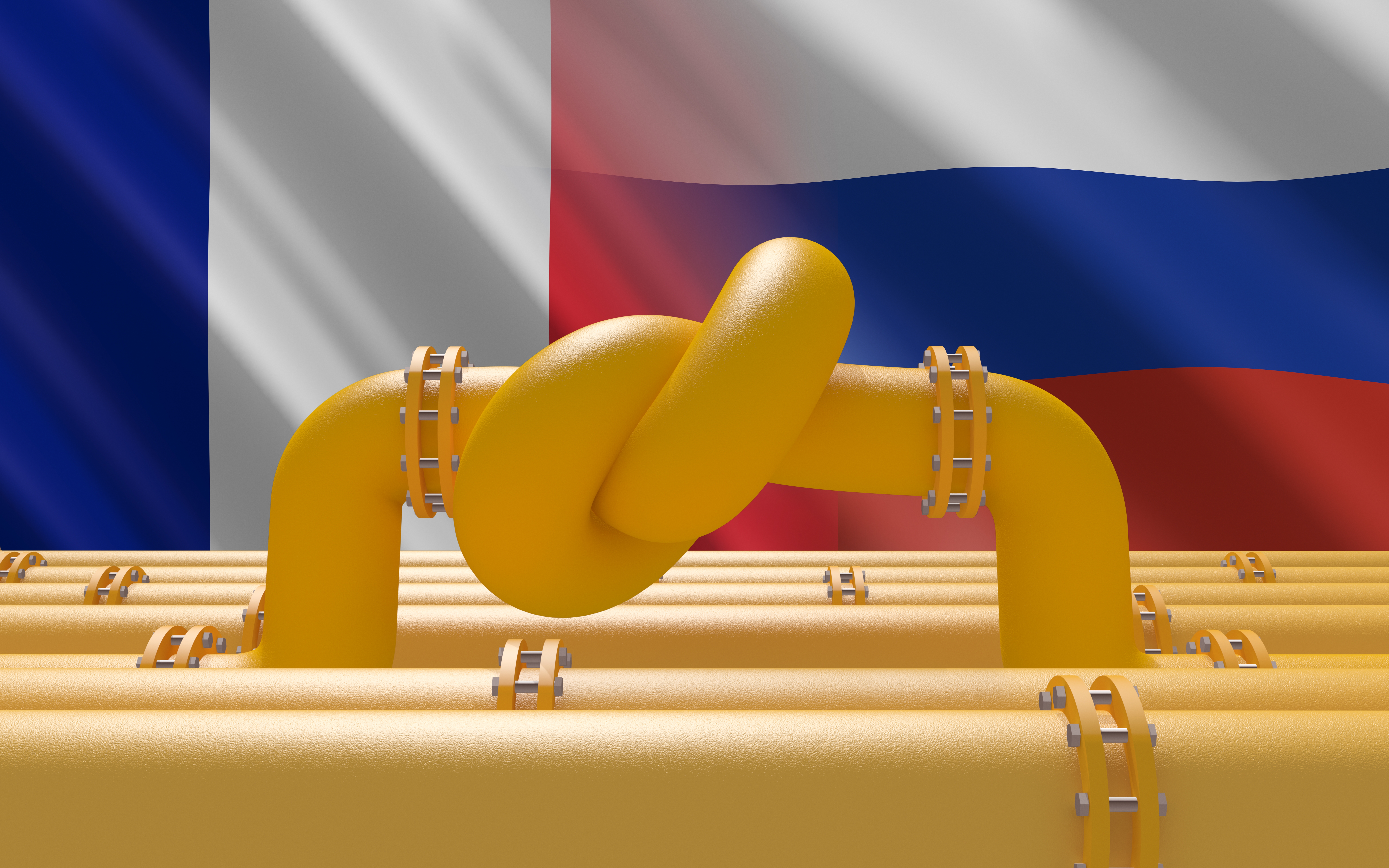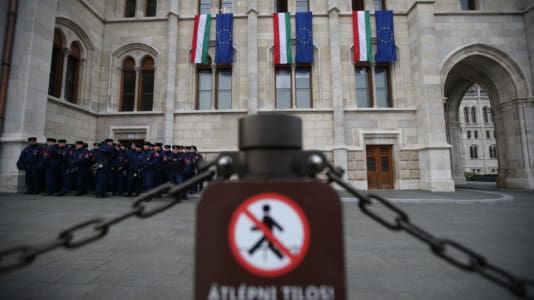In 2020, Russian gas accounted for 17 percent of gas imports into France, compared with 65 percent in Germany and 43 percent in Italy. In addition, the share of gas in France’s electricity production is only 7 percent, thanks to the massive use of nuclear power plants (56 of the 106 nuclear power plants in the EU are in France), which provide about 70 percent of electricity production, compared with 10.5 percent for hydro, 6.5 percent for wind, and 2 percent for solar, according to EDF figures for 2019.
After a few years of hesitation at the beginning of his first term, following a moratorium on new nuclear power plants, President Emmanuel Macron has decided that it is necessary to invest again in that sector and build new reactors.
In Germany, gas accounts for more than 15 percent of electricity production, due to Angela Merkel’s disastrous 2011 decision to phase out nuclear power and the gradual abandonment of coal, of which Germany remains the largest European user, ahead of Poland.
At the EU level, the share of gas in electricity production is around 20 percent, compared to 25 percent for nuclear plants, 16 percent for hydroelectric sources, 12 percent for coal, 11 percent for wind turbines, and 9 percent for solar panels. But since gas-fired power plants are used to modulate production according to demand, gas prices dictate electricity market prices in the entire EU regardless of the share of gas in a member country’s overall production. This rule also applies to France, even if it is totally absurd from the point of view of French consumers who were once promised a return on their taxes invested in nuclear power in the form of cheap and stable electricity prices.
[pp id=39903]
The inflationary effect of gas linked to the European single energy market is further amplified by the European system of CO2 emission quotas, which increases the cost of electricity produced not only with coal but also with oil and gas.
Since June 15, Russian gas deliveries from Germany to France have been interrupted. France normally receives Russian gas through pipelines and LNG tankers. At the same time, French gas stocks are only 55 percent full, and the lack of gas in neighboring countries, which are more dependent on Russian gas, will inevitably cause energy bills to explode, as there will not be enough gas on the European market.
As early as the beginning of March, Engie CEO Catherine MacGregor warned that it would be difficult to fill storage tanks for the winter if Europe were to no longer receive Russian gas.
“The real issue would be filling storage capacities in the spring and summer, in preparation for the winter of 2022-2023,” she stressed at the time, adding: “In fact, we would then be entering a new world for energy, driven by an unprecedented physical and price shock that would likely transform the energy landscape for good.”
[pp id=39637]
“The levers in our hand are limited in scope. They will not be sufficient to replace all the gas that comes from Russia today,” she said, adding that “it is not unimaginable that the government will put in place measures to limit demand.”
And in an open letter published on June 25, the heads of the three major French energy groups are now calling on individuals and companies to limit their energy consumption immediately in order to cope with the risk of gas shortages. Engie’s Catherine MacGregor is among the signatories of this open letter, together with EDF Chairman Jean-Bernard Lévy and TotalEnergies Chairman Patrick Pouyanné.
As they wrote, “for months now, the European energy system has been under great strain and the French energy system has not been spared. Russian gas deliveries by pipeline have fallen sharply for some countries, including France. Although increasing, imports of liquefied natural gas (LNG) are still too limited to compensate for these decreases. The alert level on gas stocks at the European level is therefore high, and rationing measures have been put in place in some countries. The controllable power generation capacities in Europe are also under strain as a result of national choices or maintenance programs.”
The heads of the three major French energy groups are therefore calling for “collective action on energy demand by reducing our consumption to give us back some room to maneuver.”
Indeed, they say, “acting this summer will allow us to be better prepared to face the next winter and especially to preserve our gas reserves.” However, “the effort must be immediate, collective, and massive,” and “every gesture counts.”
This dramatic appeal follows the equally dramatic appeals made in Germany by the Association of Municipal Enterprises and some employers’ associations, in the face of the risk of gas shortages next winter.
[pp id=41128]
The danger, according to the leaders of the French energy sector, is that “the soaring energy prices that result from these difficulties threaten our social and political cohesion and impact too heavily on the purchasing power of families.” Thus, whether they are major importers of Russian gas or not, because of the single market for energy, EU countries are likewise highly exposed to the effect on energy prices of the reduction or cessation of gas deliveries from Russia.
Because of the war waged by Brussels against coal, which has been for years the main source of energy for power generation in Germany and Poland and which is much cleaner than it used to be, coal cannot quickly replace the gas that is lacking for the power plants; this is because the mines have been gradually closed down for years, causing coal to be increasingly imported from Russia.
But as the Polish government has banned the import of coal from Russia since May, coal prices have almost tripled in Poland compared to last year. An EU-wide embargo on Russian coal will come into effect on August 10, with the bloc’s CO2 emission rights still weighing heavily on the cost of this source of energy. For this reason, experts predict that electricity prices could at least double in Poland next year as well even after this year’s sharp increase.
[pp id=18042]
Nevertheless, in Germany as in Poland, the governments are announcing a temporary return to coal, while the new nuclear power plants planned in France and Poland, in particular, will not see the light of day until the 2030s.
Similarly, the reactivation of gas and oil projects in the North Sea, which were suspended because of the U.K. and EU’s fight against climate change, will not bear fruit for several years.
As for France, it is worth recalling that a moratorium was declared in 2011 on the hydraulic fracturing technique for extracting shale gas, which, according to experts, could have covered 170 percent of France’s gas consumption for at least three decades, as well as part of its oil consumption. So France now has to import more shale gas from the United States to replace Russian gas. We must therefore ask ourselves today if it is the invasion of Ukraine by Russia that is at the origin of the French and European energy crisis, or rather Europe’s “green” policies that have been blind to the fact that gas, oil, and coal extracted elsewhere to be burnt in Europe pollute the planet no less than if they were extracted in Europe.





